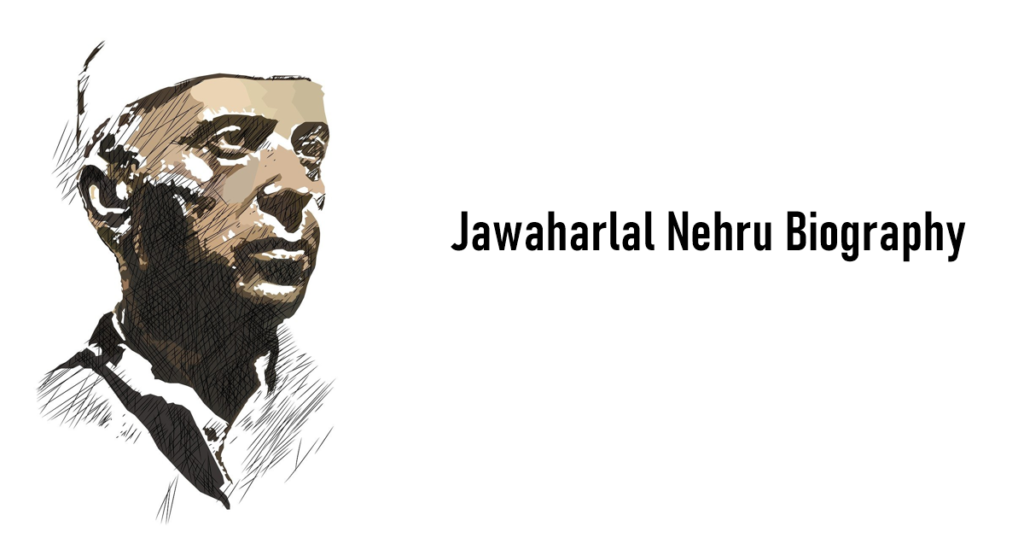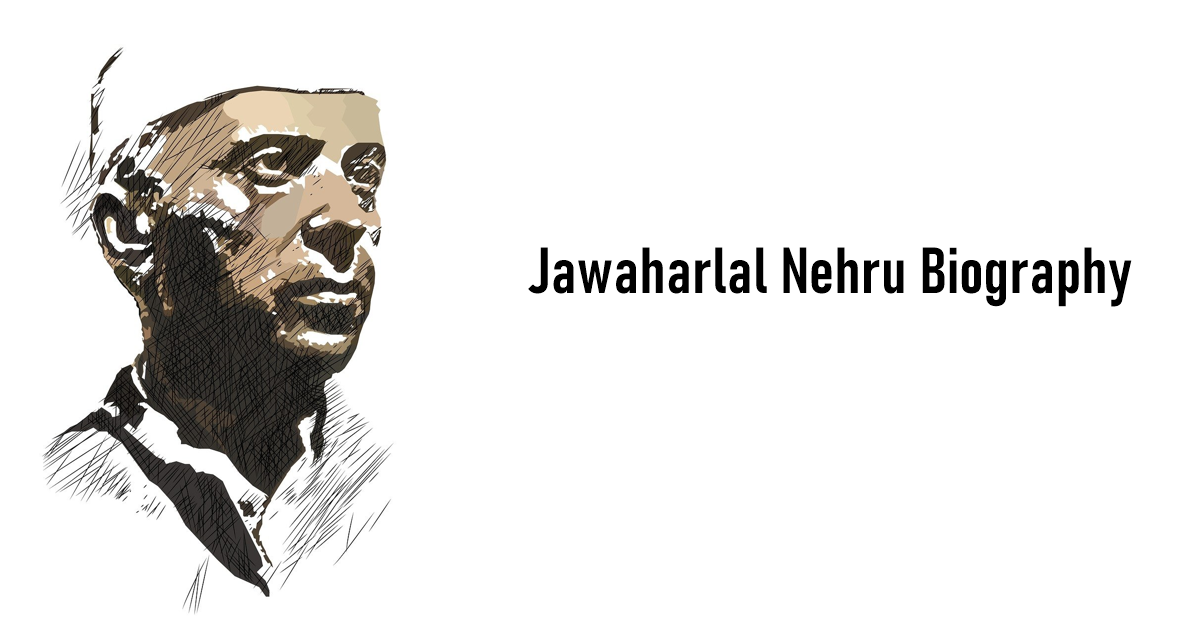Pandit Jawaharlal Nehru served as India’s first prime minister following its independence. He was a key leader of the Indian National Congress, drawing the country’s intellectuals and youth into the movement.

Pandit Jawaharlal Nehru Early Life, Family and Education
Pandit Jawaharlal Nehru was born on 14 November 1889 in Allahabad, Uttar Pradesh. His father, Motilal Nehru, a self-made wealthy barrister who was born into the Kashmiri Pandit community, served twice as president of the Indian National Congress. His mother was Swarup Rani Thussu. Jawaharlal was the eldest of three children. The elder of his two sisters was Vijaya Lakshmi, Krishna Hutheesing.
Until the age of 14, he received private tuition at home to complete his early schooling. He then moved to England to attend Harrow School at the age of fifteen. Two years later, he attended Trinity College in Cambridge and graduated with honours in the natural sciences. He finished his barrister studies at the Inner Temple in London.
He lived in England for seven years but always felt somewhat lost, torn between India and England. He returned to India around 1912 and was involved in the struggles of all countries under foreign rule. In 1916, he married Kamala Kaul and moved to Delhi. Their daughter, Indira Priyadarshini, later known as Indira Gandhi, was born in 1917.
Jawaharlal Nehru’s Political Journey
In 1912, he participated in the Bankipore Congress as a delegate.
He first met Mahatma Gandhi in 1916 and was greatly influenced by him.
He arranged the first Kisan March in the region of Pratapgarh in 1920.
He was imprisoned twice as a result of the Non-Cooperation Movement (1920–22).
He participated in the Congress of Oppressed Nationalities in Belgium as a representative of the Indian National Congress.
He was in Moscow to attend the October Socialist Revolution’s 10th-anniversary celebrations in 1927.
He was lathi-charged in Lucknow in 1928 during the Simon Commission.
On August 29, 1928, he attended the All-Party Congress and signed the Nehru Report, which bears his father’s name, Shri Motilal Nehru.
He established the “Independence for India League” in 1928 and served as its General Secretary.
In 1929, he was chosen to lead the Lahore session of the Indian National Congress. The entire agenda for the country’s independence was only adopted at this session.
Between 1930 and 1935, he was often imprisoned as a result of his involvement in the Salt Satyagraha and other activities started by Congress.
He finished writing his “Autobiography” at Almora Prison on February 14, 1935.
He visited his unwell wife in Switzerland after being released from prison.
On October 31, 1940, to oppose India’s forced entry into the war, he was once again taken into custody.
He was released from prison in December 1941.
On August 7, 1942, in Bombay, during the meeting of the “All India Congress Committee,” Nehru proposed the decision to “Quit India.”
On August 8, 1942, he and other leaders were arrested and transported to Ahmednagar Fort. His last and longest imprisonment occurred during this time.
After being freed from prison in January 1945, he organized a legal defence for INA officials and members accused of treason.
He was chosen as the President of the Congress for the 4th time in July 1946, and he served for 3 more terms from 1951 to 1954.
He became India’s first Prime Minister as a result. He was the first prime minister to raise the flag and deliver the well-known speech “Tryst with Destiny” from the ramparts of the Lal Quila (Red Fort).
Pandit Jawaharlal Nehru’s Major Works as the First Prime Minister of India
He promoted contemporary values and philosophy.
He emphasized a liberal, secular attitude.
He focused on India’s fundamental unity.
He implemented the first five-year plans in 1951, promoting democratic socialism and encouraging India’s industrialization.
He supported higher education, contributing to the growth of science and technology.
He initiated several social changes, including providing free lunches for Indian children, offering free public education, and securing legal rights for women, such as the right to inherit property and laws banning caste-based discrimination, as well as the freedom to divorce their spouses.
Pandit Jawaharlal Nehru Legacy
Pandit Jawaharlal Nehru was a strong advocate for pluralism, socialism, liberalism, and democracy. He had a deep affection for children, and as a result, his birthday is celebrated as Children’s Day in India. Pandit Jawaharlal Nehru played a pivotal role in advancing India’s education by founding top-tier institutions such as the Indian Institute of Technology, All India Institute of Medical Sciences, and India’s first Space Program.
Notably, a TV series titled “Bharat Ek Khoj,” created by Shyam Benegal was based on Nehru’s renowned book, “Discovery of India.” Additionally, he was prominently featured in Richard Attenborough’s biopic “Gandhi” and Ketan Mehta’s “Sardar.”
Pandit Jawaharlal Nehru Death
Pandit Jawaharlal Nehru passed away on 27 May 1964 due to a heart attack. His cremation took place at the Shantivan on the banks of the Yamuna River in Delhi.
Also Read:
Priyanka Gandhi Biography
Kalpana Chawla Biography
Frequently Asked Questions
How long was Pandit Jawaharlal Nehru prime minister?
His premiership, which lasted 16 years and 286 days, is the longest in India’s history to date. It ended with his death in 1964 due to a heart attack. He was hailed as the “architect of Modern India” and his birthday is celebrated as Children’s Day in India.
What was Nehru’s education?
Pandit Jawaharlal Nehru was born in Allahabad on November 14, 1889. He received his early education at home under private tutors. At the age of fifteen, Nehru went to England, and after two years at Harrow, he joined Cambridge University where he completed his tripos in Natural Sciences.
What happened to Pandit Jawaharlal Nehru’s wife?
Kamala Nehru passed away on February 28, 1936, at a hospital in Switzerland after battling tuberculosis.
Sangeetha is a passionate writer with over 10 years of experience in Content Marketing. When Sangeetha is not Writing, Geetha enjoys Watching Movies. Through topbestindia, Sangeetha aims to “inspire readers with the latest trends”.

